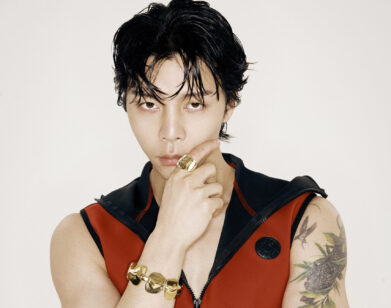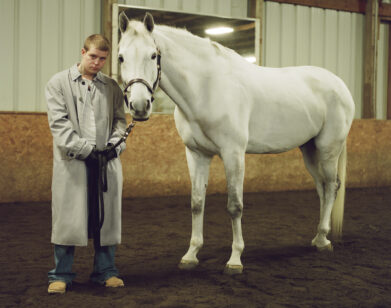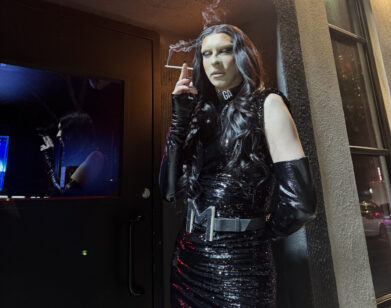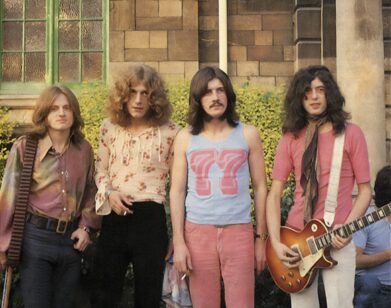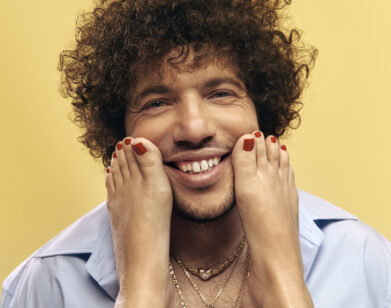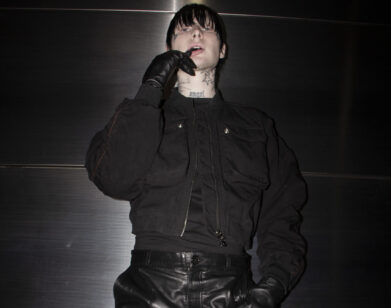Palma Violets
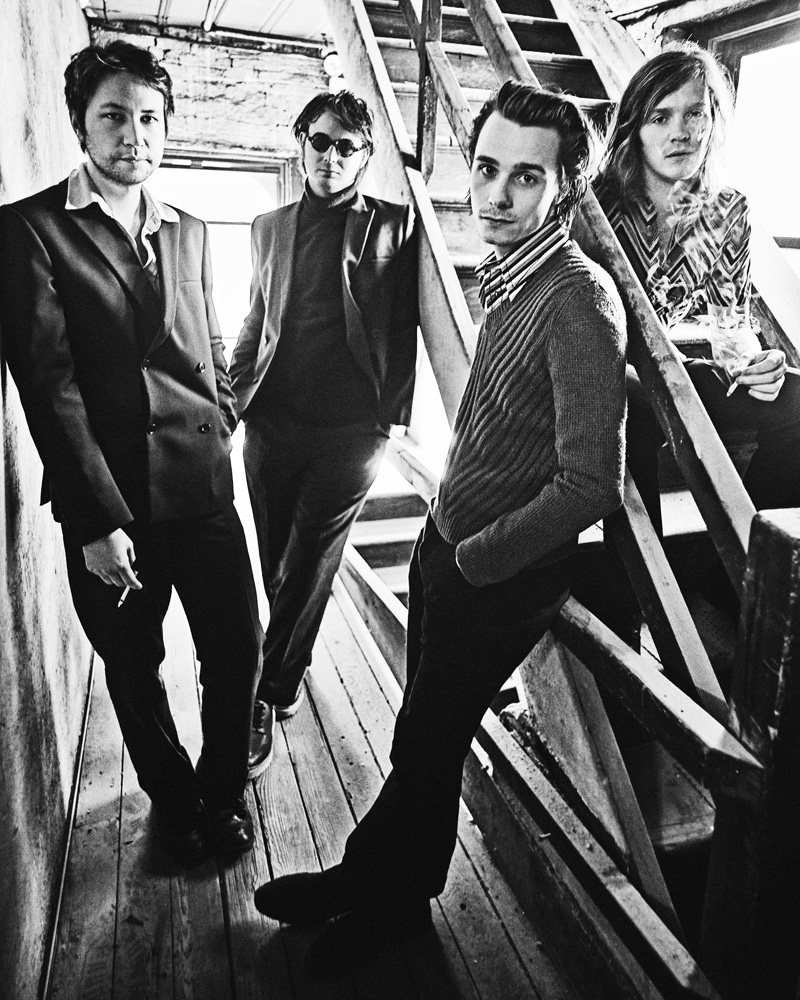
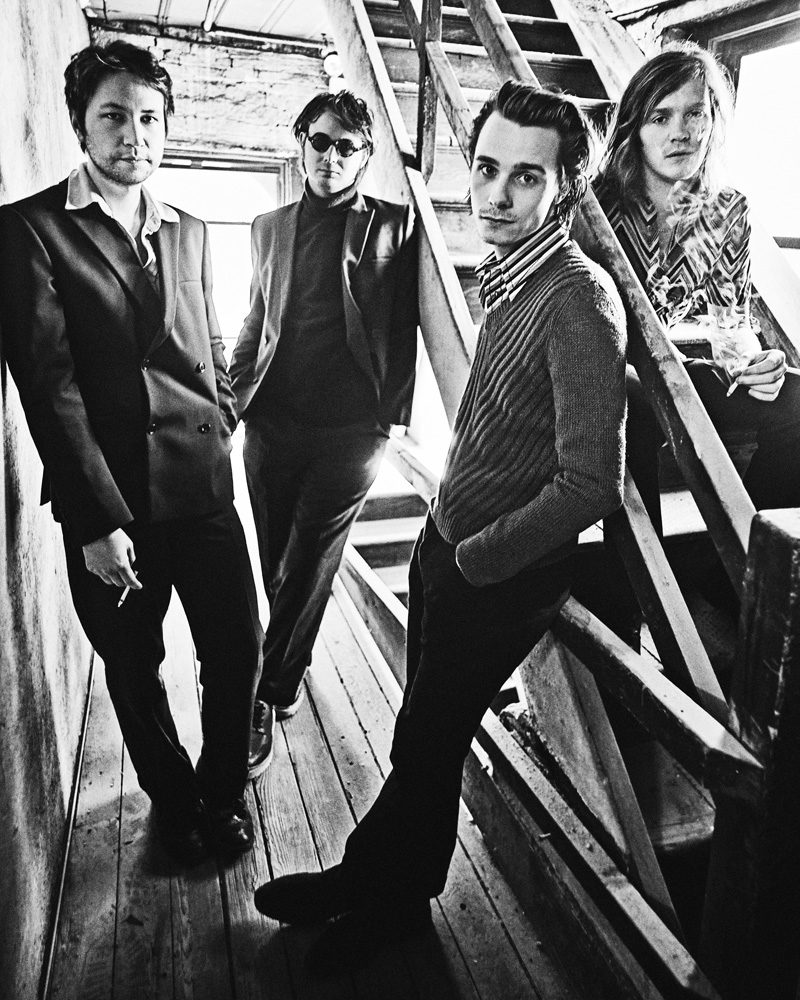
PALMA VIOLETS IN NEW YORK, MARCH 2015. FROM LEFT: SUIT: CALVIN KLEIN COLLECTION. SHIRT AND SHOES: WHAT GOES AROUND COMES AROUND, NYC. ON SAM FRYER: SUIT AND SHOES: CALVIN KLEIN COLLECTION. TURTLENECK: TSE. SUNGLASSES: CUTLER AND GROSS. ON CHILLI JESSON: SWEATER AND SHIRT: PRADA. JEANS: SAINT LAURENT BY HEDI SLIMANE. SHOES: CALVIN KLEIN. ON WILL DOYLE: SHIRT: LOUIS VUITTON. PANTS AND BELT: PRADA. STYLING: MICHELLE CAMERON. HAIR: WESLEY O’MEARA FOR AG HAIR/HONEY ARTISTS. MAKEUP: MARLA BELT FOR LAURA MERCIER/STREETERS LONDON.
Palma Violets are only a few songs into their set at East Williamsburg DIY venue Shea Stadium when they blow a fuse. No one drops his mic, and the band’s floor-shaking energy—the kind that has singer-bassist Chilli Jesson bouncing about the stage and hype-man Harry Violent launching himself into the crowd—never falters. Drummer Will Doyle pounds on through the darkness with a solo. The power comes back, and they move on.
Friends before they were bandmates, Jesson and Doyle, both 21, and keyboardist Pete Mayhew and singer-guitarist Sam Fryer, both 23, first met at the 2009 Reading Festival. “Chilli was trying to get with our best friend. He was an imposter,” deadpans Fryer. “In the morning, we woke up in our tent and thought he was only in our imagination, and we brushed him aside. Then we saw him at a party a couple days later, and he was real.”
The south London quartet’s debut album, 180, released in 2013, received the type of lavish acclaim from the U.K. music press (“the most exciting band on earth right now”) that can be difficult to live up to the next go-round. But while Palma retain their ramshackle garage-rock sound and lads-in-the-local-pub attitude on their new album, Danger in the Club (Rough Trade), they’ve moved beyond the end-of-teens angst of songs from 180 like “14” and “Best of Friends.” The new songs were written in seclusion on a farm in Wales and have a forthright rawness regardless of the subject matter, which ranges from unbridled excitement (“Hollywood [I Got It],” a fast-paced ode to the American dream) to quiet regret (“The Jacket Song,” a recollection of a past lover). “It took a long time to learn how to write together again, because you don’t have the same bond you once had. You’ve got to build it,” Fryer says. “We always go too far and step back,” adds Doyle. “We have it, and then we go, ‘But what if?’ But you know if you’ve overstepped the mark.”
The band credits producer John Leckie (the Fall, Radiohead) with expanding their scope. “He hadn’t done a rock-‘n’-roll album in such a long time. He was just generally excited, which had a big impact on us,” says Fryer. “We’d be there in the studio, and he’d say, ‘Has anyone got any half-finished songs or songs that they aren’t confident in? Let’s listen to them.’ Five or six songs came about because of that. We didn’t even know we had them in us.”

